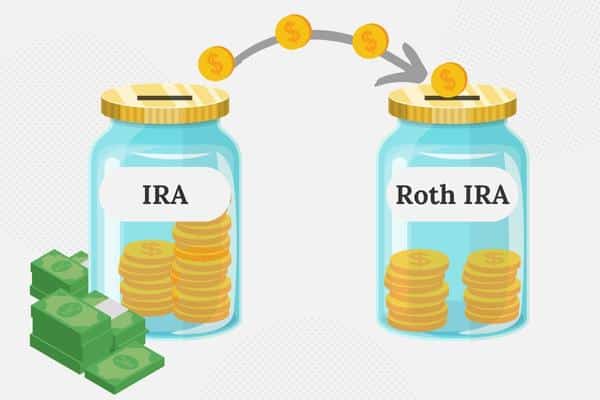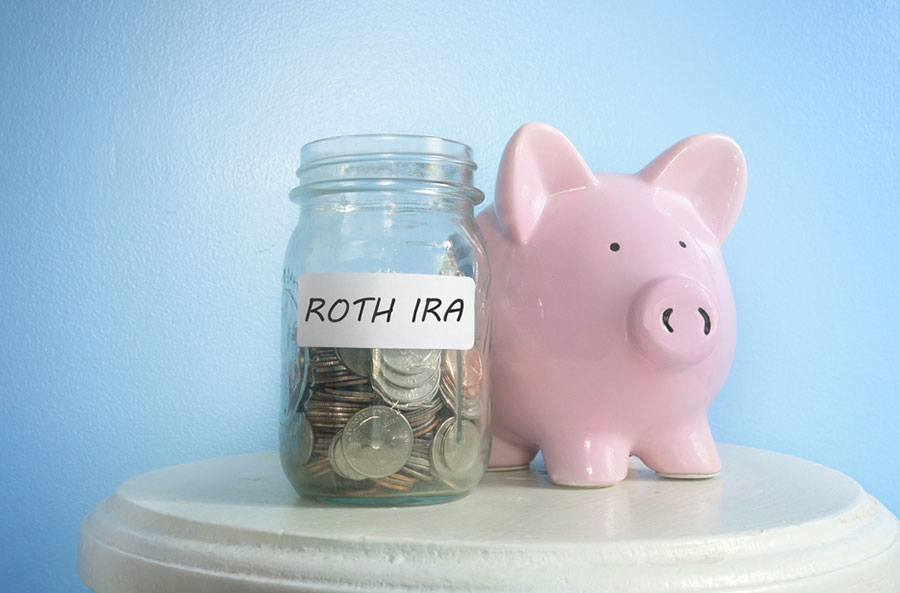Saving for retirement takes time, diligence, and wise decision-making. This includes making smart tax investment strategies part of your planning. The more you get to keep after-taxes has a large impact on the magnitude of your retirement and long-term wealth legacy. Among many investment tax strategies, a Roth IRA conversion is a powerful one that warrants ongoing consideration.
How Is a Roth Account Different?
Traditional IRAs and employer-sponsored qualified retirement plans allow you to save money without paying taxes on the savings when they are contributed. While this is an immediate benefit, all future retirement plan distributions are fully taxable to you. Such taxable distributions can generate significant tax impacts to you in retirement, and to your heirs upon your death.
Conversely, a Roth account is funded with after-tax dollars. You do not receive a tax deduction benefit upon making a contribution, but the future tax benefits are impactful. A Roth allows contributions to grow tax-free and for future distributions to be taken tax-free. This tax-free element can be a powerful tool relative to your own retirement planning and for the benefit of any future beneficiary.
What Is a Roth Conversion?
You can make traditional Roth contributions to your employer sponsored Roth retirement plan or to a Roth IRA account (depending upon income limits). Beyond traditional contributions, you have the option of converting prior retirement savings into a Roth IRA account.
A Roth IRA conversion is when you withdraw funds from a Traditional IRA or qualified retirement plan and put them into a Roth IRA. Doing so requires you to pay taxes now. However, it also allows you to invest the converted amount on a tax-free basis going forward, and to avoid future taxes in retirement.
What Are the Benefits of a Roth IRA Conversion?
Roth accounts are very different than traditional IRA and 401(k)s with regard to their taxation now, in retirement, upon death, and in terms of when you can access the funds. Key features and benefits include:
-
Tax-Free Withdrawals
While you pay taxes when monies go into a Roth account, you don’t pay taxes when you take distributions in retirement. This could allow you to minimize your long-term tax burden by paying taxes now, allowing the money to grow tax-free, and be withdrawn tax-free later in retirement.
-
No Mandatory Distributions
Under current law, you are not required to take required minimum distributions (RMDs) from Roth IRA accounts. This allows greater flexibility in retirement, and the ability for your savings to grow tax-free for significant periods of time.
-
Early Distribution Options
While Roth IRAs are great for extending distribution requirements and for inheritance planning, they are also more flexible during your life if needed. Unlike traditional retirement accounts, Roth savings can be withdrawn pre-age 59 ½. Roth conversion assets can be withdrawn tax-free, and free of penalty after five years from January 1 of the year converted. Each sequential conversion must meet this five-year rule to avoid penalty.
-
Tax-Free Distributions to Your Heirs
Upon your death, the beneficiaries of your Roth IRA will be required to distribute the Roth IRA account over an IRS mandated period if the beneficiary is not the spouse. However, all distributions paid to your heirs are tax-free, thereby potentially maximizing long-term family wealth transfers.
What Are the Risks of a Roth IRA Conversion?
The power of Roth accounts can make them a fantastic strategy, and one that is important to regularly review. However, there are some considerations that must be taken into account when evaluating if a Roth IRA conversion makes sense for you.
-
Taxes Paid Upon Conversion
Money converted from a traditional IRA or qualified retirement plan to a Roth IRA is fully taxable as income in the year of the conversion. Paying taxes now means that you will be diluting your savings nest egg. This should only be done if you expect to recoup that tax loss long-term. Any Roth conversion should consider your current tax bracket, the tax percentage that will apply to your Roth conversion, and your long-term tax bracket expectations.
-
Cash to Pay the Taxes
In general, you should never pay taxes from the amount of savings converted as doing so dilutes long-term growth that makes this strategy successful. It is best to pay conversion tax liabilities from cash savings or by increasing your tax withholdings on earnings.
Example: If you convert $10,000 to Roth IRA and you owe $2,000 in taxes, the full $10,000 should be converted to the Roth IRA account and you should pay $2,000 from your bank account, or by increasing your tax withholdings at work.
-
Five Year Waiting Period
Money converted to a Roth IRA is subject to a five-year holding period before withdrawals of any investment gains can be taken tax-free. Each conversion is treated separately relative to this five-year rule.
-
Irrevocable
Roth conversions are irrevocable and cannot be reversed.
Should I Convert to a Roth IRA?
The tax impacts of a Roth IRA conversion require careful thought. A few scenarios when Roth conversions could make sense include:
-
- Your current tax bracket is much lower than what you expect in the future due to anticipated career advancement, a current year drop in earnings, or other reasons.
- You’re retired and have low taxable income in the year prior to mandatory retirement account distributions beginning when you are age 72.
- You foresee your net worth being subject to estate taxes and are willing to pay taxes now in hopes of maximizing wealth transfer to your heirs long-term.
- A market downturn may also present an opportunity. If you have portfolio positions that are at depressed values, it could be an opportunity to convert assets while “on sale,” with the goal of capturing appreciation tax-free post the conversion.
Working with clients, SageVest makes high-level assessments a part of any conversation about Roth IRA conversions and other financial strategies. Our approach always considers your specific situation and impacts on your future financial wellbeing. Ultimately, our objective is to help you achieve the best life possible through smart financial decision-making. Please contact us to discuss these or other financial considerations.




